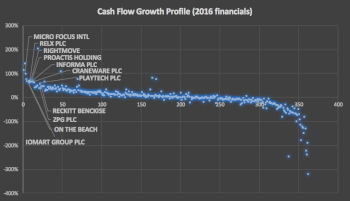This content is only available within our institutional offering.

17 Mar 2020
Consumer Goods: Reality check
AB INBEV (ABI:EBR), 0 | Anheuser-Busch InBev SA/NV (ABI:BRU), 0 | British American Tobacco p.l.c. (BATS:LON), 4,125 | C&C Group Plc (CCR:LON), 173 | Coca-Cola HBC AG (CCH:LON), 3,928 | Diageo plc (DGE:LON), 1,830 | Imperial Brands PLC (IMB:LON), 2,956 | Pernod Ricard (RI:EPA), 0 | Pernod Ricard SA (RI:PAR), 0 | Reckitt Benckiser (Bangladesh) PLC (RECKITTBEN:DHA), 0 | Reckitt Benckiser Group plc (RKT:LON), 5,586 | Tate & Lyle PLC (TATE:LON), 534 | Unilever PLC (ULVR:LON), 4,531

Sign in
This content is only available to commercial clients. Sign in if you have access or contact support@research-tree.com to set up a commercial account
This content is only available to commercial clients. Sign in if you have access or contact support@research-tree.com to set up a commercial account
Consumer Goods: Reality check
AB INBEV (ABI:EBR), 0 | Anheuser-Busch InBev SA/NV (ABI:BRU), 0 | British American Tobacco p.l.c. (BATS:LON), 4,125 | C&C Group Plc (CCR:LON), 173 | Coca-Cola HBC AG (CCH:LON), 3,928 | Diageo plc (DGE:LON), 1,830 | Imperial Brands PLC (IMB:LON), 2,956 | Pernod Ricard (RI:EPA), 0 | Pernod Ricard SA (RI:PAR), 0 | Reckitt Benckiser (Bangladesh) PLC (RECKITTBEN:DHA), 0 | Reckitt Benckiser Group plc (RKT:LON), 5,586 | Tate & Lyle PLC (TATE:LON), 534 | Unilever PLC (ULVR:LON), 4,531
- Published:
17 Mar 2020 -
Author:
Nicola Mallard | Alicia Forry, CFA | Anthony Geard -
Pages:
14 -

Upgrades Coca-Cola Hellenic to Buy (from Add), Unilever to Buy (from Add) and Tate & Lyle to Hold (from Sell). Downgrade: Diageo to Sell (from Hold).
Estimates could fall significantly for Consumer Goods companies highly exposed to the on-trade, which include Spirits, Brewers and Soft Drinks. Spirits and Brewers derive roughly half of their revenue from the higher margin on-trade, with Soft Drinks slightly less exposed. However, some of these sales will shift to the off-trade as consumers will drink at home – though there will probably be some trading down in this process. Assuming a drastic scenario, we think sales for these companies could fall by 15%; more realistically we think they could fall by 5-10%. We expect the drop in sales and volumes for these products will be temporary, as has been the case in previous crises, and that, longer term, Spirits, Brewers and Soft Drinks offer attractive mid-single digit organic sales growth that should entice investors with longer time horizons.
In the more defensive areas, such as Food, HPC and Tobacco, companies may even see a short term boost to growth as households stock up. These companies have outperformed the wider market by 5-20% year-to-date in the UK & Europe.
High quality names in the wider Consumer Goods sector have maintained significant valuation premiums. Beiersdorf, L’Oréal, Estee Lauder, Coca-Cola, Pepsi, Colgate, Church & Dwight, P&G, Campari and Remy are still trading on consensus-based CY20 PE’s north of 20x – whereas the average for our coverage is 12.5x.
The sell-off in Tobacco is the most surprising to us, given the clearly defensive nature of the product. Governments in Europe have allowed tobacconists to remain open in areas where other shops have closed, in acknowledgment of citizens’ need for access to tobacco and tobacco alternatives.
Leverage is a key concern for investors in the current environment, and indeed many Consumer Goods companies are burdened with debt following several years of heavy deal-making. However, even the most levered company, ABI (currently 4.5x net debt/EBITDA), can afford to lose 74% of its cash from operations before it would need to find other sources of cash to make its annual interest payment. ABI has $16bn total liquidity across its revolving credit facility (already fully drawn down) and cash on hand, and has $3bn of debt maturing in 2020. It also is yet to receive the $11bn in proceeds from the sale of its Australian business to Asahi. The second most levered company, BAT (currently 3.5x net debt/EBITDA), would have to lose 84% of its cash from operations before it would not be able to pay its interest out of internally-generated cashflows. These large, multi-national, defensive companies are unlikely to find themselves in a position of needing to raise capital even if coronavirus impacts business significantly. Furthermore, the low interest rate environment should be helpful for re-financing debt across the sector once markets stabilise.






